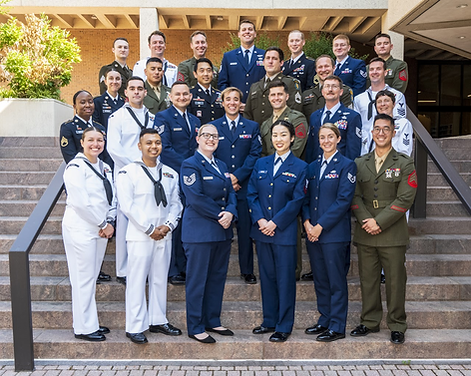Dominique Jean Larrey: Surgeon-General of Napoleon’s Grande Armée
- Price Parker

- Aug 5, 2025
- 4 min read
Updated: Sep 3, 2025

Among the figures who shaped the practice of military medicine, few stand as tall as Dominique Jean Larrey (1766–1842). Surgeon-in-Chief of Napoleon’s Grande Armée, Larrey combined the ingenuity of an innovator with the compassion of a true physician. His name lives on not only for his surgical skill and the invention of the ambulance volante, but for his most enduring legacy: the establishment of triage, a principle that continues to guide medicine on and off the battlefield.
Born in Beaudéan in the French Pyrenees, Larrey’s life began in obscurity. Orphaned young, he was apprenticed to an uncle who practiced surgery in Toulouse. From these early lessons in anatomy and manual skill, Larrey’s destiny carried him into military service at a time when surgery was harsh, hurried, and often fatal. On the battlefield, chaos reigned; those of rank received care, while the common soldier was left to fate. It was in this crucible that Larrey began to ask the questions that would transform both practice and principle.
Larrey’s greatest innovation in logistics was the “ambulance volante,” or flying ambulance. Modeled after artillery carriages, these horse-drawn wagons swept wounded men from the field of fire and delivered them swiftly to field hospitals. Yet the deeper innovation was not the speed of evacuation, but the method of care once patients arrived. Larrey insisted that the gravely wounded must be treated first, without regard to rank, class, or station. A general with a sprained wrist could wait; a private with a shattered femur could not.

This idea, so commonplace to us now, was radical in Larrey’s age. In his memoirs, he wrote: “Those who are dangerously wounded should be the first attended to, without regard to rank or distinction. They claim the first attention which is due to suffering humanity.” From this conviction, the practice of triage was born. What had been a battlefield improvisation became a universal medical ethic: to prioritize treatment by need and survivability, not privilege.
The implications were profound. Larrey’s triage system both saved lives and ennobled medicine. It rejected the arbitrary in favor of the humane, placing physicians in the role of impartial guardians rather than servants of power. It demanded of surgeons not only technical skill, but moral clarity—the courage to see in every soldier, regardless of uniform or title, the same claim to dignity and care.
Larrey carried this ethos with him across the campaigns of Napoleon, from the sands of Egypt to the snows of Russia. He operated tirelessly, sometimes performing hundreds of amputations in a single campaign, always guided by the same principle: treat first those who needed it most. He became beloved by soldiers, who knew that in Larrey’s eyes their wounds carried equal weight, whether they bore stripes or epaulettes. Napoleon himself called him “the most virtuous man I have ever known.”
The climax of Larrey’s story—and the vindication of his principle—came after Waterloo in 1815. As the Grande Armée collapsed and Napoleon fled, Larrey remained with the wounded, continuing to treat them even as the battlefield fell under enemy control. Captured by Prussian forces, he faced near-certain death, for the bitterness of the war left little room for mercy.
But when brought before General Blücher, the Prussian commander, Larrey’s identity was revealed. Years earlier, Larrey had saved the life of Blücher’s son after the Battle of Dresden, treating him with the same impartial urgency he gave to every patient. Now that act of triage—choosing to treat a wounded enemy without regard for uniform or allegiance—returned to him as grace. Blücher, recalling Larrey’s humanity, spared his life and granted him safe passage back to France.
Thus, the principle Larrey lived by became the principle that preserved him: the impartial recognition of suffering, and the duty to heal it. His survival after Waterloo was not an accident of fortune, but the fruit of a life lived according to the ethic he had given to the world.

Dominique Jean Larrey died in 1842, honored by veterans and civilians alike. His funeral in Paris drew throngs of mourners, a testament to a life that had touched thousands not only through surgical innovation but through the simple, radical conviction that medicine must serve need before status. Today, every system of triage, every medevac mission, every emergency room protocol bears his imprint.
For those who follow the path of soldier and physician, Larrey’s life is more than history. It is a reminder that the work of military medicine is never merely technical. It is moral. His flying ambulances and surgical skill advanced the art, but it was his ethic of triage—his unwavering insistence on humanity before hierarchy—that continues to guide us. His life, and his survival after Waterloo, embody the timeless truth that in healing the wounded without prejudice, we preserve not only life but the very dignity of our shared human story.





Comments